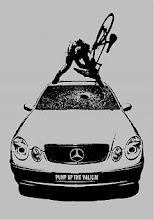I arrived at the Arivaca camp after a few days in Tucson, and having completed my training a few weeks previous. The camp consists mostly of a camper van, a large tent area for the kitchen, a solar shower, bucket toilet, and some cots to sleep on. The temperature can exceed 110/45 degrees, but has dropped recently with the monsoon season setting in

The camp has been running in some form or another for the past 4 years, but only this year has it been running solidly, and using GPS systems and maps. Last year was hindered by the court case surrounding Shanti and Daniel, who faced 15 years in prison for transporting three men to hospital
(see: http://nomoredeaths.org/index.php?option=com_content&task=view&id=54&Itemid=1)
Every morning those volunteering at camp set out at around 6am in the 4WD's at camp (the roads are incredibly rough and often washed out, or just non-existent), to hike trails previously mapped that are known paths of migration from the border to pick-up points in Arivaca, or further north. Commonly groups are picked up by car and driven to Tucson or Phoenix on the I-19, however the town of Arivaca is now a literal police-state, with border patrol ('Migra') crawling all over town and throughout the desert/ranch land

Usually b/w one and three groups of volunteers split up to hike different trails, once around 6am, and again around 4pm, in an attempt to avoid the heat. Groups carry gallon jugs of water to be left at busy points on trails, food packs, socks, medical aid, along with maps and GPS to keep track of where we are
While on the trails volunteers will yell out in Spanish that we have food, water, medical aid, are not the Border Patrol, so that groups initially scared off by our presence may speak up. Its more common not to come across anyone, though footprints give away that the trails are (or are not) being used. If we discover the gallon jugs we have left out (that are dated) are gone, or empty, we know the trails are in use and the water has been used.

Privilege is an issue at hand that many of us are confronting (many more successfully than others). Interactions with the Border Patrol, locals, and police quickly spell out where privilege lies. My frustration with myself also centers around my lack of medical training (many who volunteer are wilderness first responders, or Woofers) and my continued lack of Spanish-speaking skills.
Interactions with Border Patrol span the full spectrum, and involve some strong efforts of tongue-biting, but also a realization that not every single one is an asshole, or unaware of the situation (though these are exceptions to the rule). Often while walking we will trip a hidden ground sensor, and B.P. will appear from nowhere. Other times B.P. in helicopters (sometimes Black Hawks) will buzz you only a few feet above. And occassionally B.P. will actually get out of their cars and follow you on trails, surprising you as you round a corner, only to have them realize you are volunteers
A certain level of stone-walling goes on between B.P. and NMD, with both sides trying to obtain more information from each other. Often B.P. will thank us for our work, though its clear they are thanking us for the wrong reasons commonly. More often than not, when we come across someone, they are alone and have been separated from their group. Commonly they have blisters or a swollen ankle and so have been left behind, or were lost when their group scatted upon seeing B.P. Most understand that we cannot transport them, and upon realizing this ask that we call B.P. so that they can be deported back to Mexico. Some want to return home, not realizing the difficulties they would face from a 5 day walk through the desert, dealing with intense heat and intense rain storms, the impossibility of carrying enough food or water. Others want to return to rest and try again.
The small town of Arivaca and the surrounding area is a living police state. Driving along the one main road you see Wackenhut buses, sitting idle, waiting for B.P. to fill them with people to be deported. Wackenhut now goes by another name, but the private company used to transport deportees still has their buses emblazened with their old name. On rare occassion drivers will allow us to distribute food, water and socks on the bus to those made to wait hours before being driven to a center to be processed, and then deported or arrested.

> one of the many Wackenhut buses seen in Arivaca, but also seen as far north as Tucson

> An unmarked 'BORSTAR' truck, part of the search and rescue division of the Border Patrol
A few miles from the border the Department of Homeland Security (DHS) are also testing some new 'towers' complete with cameras and infra-red to detect people crossing through the desert. Much of the new technology used in the war against migrants is from the good folks at Boing, as well as a newly contracted group from Israel involved with building the apartheid wall there
There is a lot of downtime at camp, though its often too hot to move during the middle of the day, and dark at 8.30, so most are asleep by 9. With no running water, electricity, and little lighting, its makes life somewhat interesting. Thankfully there is horseshoe and group photography...




1 comment:
Post a Comment